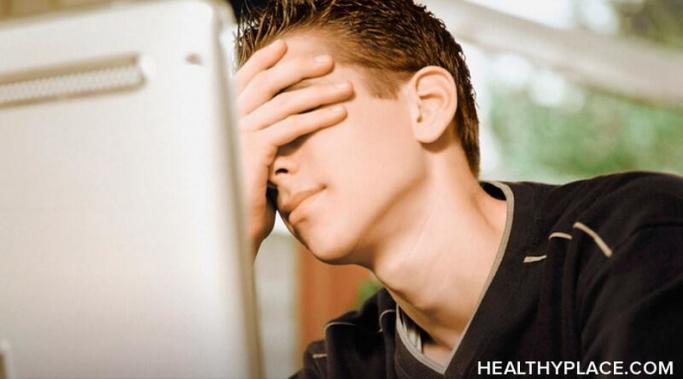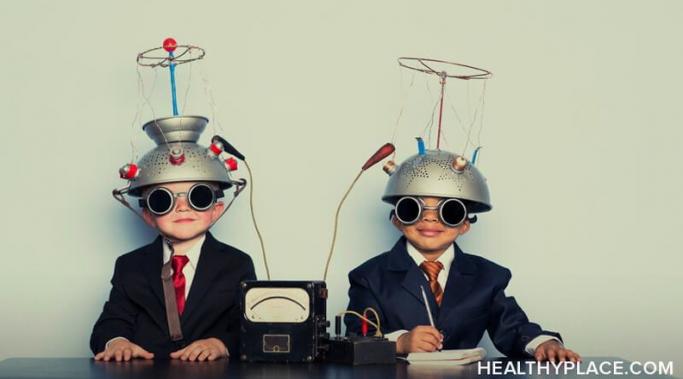Binge-watching television while coping with depression doesn't mix. I’ve been watching episode after episode of Shameless on Netflix this week and it’s been messing with my ability to cope with my depression. While I can easily excuse watching multiple episodes of a show in a row by calling it creative stimulation or a pleasant distraction from my mental health challenges, it’s a bad idea. Binge-watching TV stops me from moving around and accomplishing things and it works me up emotionally. I usually end up more depressed after binge-watching TV than if I have done something else. When I cope with depression, I try not to binge-watch television.
Coping with Depression
Small changes to your coping with depression habits can dramatically improve your mental health and your life experience. We often think that change has to be big and immediate, but small, long-term changes are just as effective. By incorporating a few small changes into your daily routine, you can practice creating new habits with realistic standards. Here are two small changes I have made that have improved my coping with depression.
Socializing while coping with depression is challenging. As the New Year approaches and various holiday parties ensue, I am feeling the pressures of socializing while depressed because I find this time of the year too emotionally difficult and exhausting. I wrote a couple of weeks ago about surviving the holidays while coping with depression by taking time for yourself during social engagements and doing what makes you comfortable. Here are some other things that have helped me maintain healthy social interactions while coping with depression during the holiday season.
I have recently been forced to cope with extreme anger as a symptom of depression. Not crabbiness or grumpiness or irritation--anger. Bitter rage intoxicates my brain and makes it impossible to care about anything (Confronting the Dragon: Mental Illness and Rage). I am indifferent, and I’ve never been indifferent. I cannot find enjoyment in anything, and I have always tried to find little joys. Laughter feels foreign and serenity seems like a figment of my imagination. The most infuriating part is that I have no idea why I am so angry, and the anger has created a setback in my process of coping with depression.
Coping with depression during the holidays can be tough. The holiday season is upon us and with it comes all sorts of internal battles, emotional struggles, financial stretches, and difficult decisions. While that's a harsh description of the most wonderful time of the year, I’ve lived through enough holiday seasons to know that the ratio of holiday spirit to holiday sorrow can sometimes be less than ideal. It can feel like you're drowning in expired egg nog when you’re coping with depression during the holiday months (What Is Holiday Depression?), so I’ve written down a few ways of surviving the holidays while coping with depression.
Yesterday was Election Day, and though it was the end of the election cycle, for many it was the beginning of post-election depression -- but the good news is that extreme self-care can help you cope with post-election depression. Social media and news media outlets have been teeming with election-related articles, memes, videos, pictures, and posts with overwhelmingly negative messages. There remains potential for a severe backlash regarding election results and further negative coverage, so I've made a list of thoughts and practices that should help you cope with post-election depression, including extreme self-care (Implement Extreme Self-Care for Depression).
Comparing yourself to others is not beneficial while coping with depression. I live by the phrase, “Comparison is the thief of joy.” It means that comparing something of yours to someone else’s can steal good feelings. And while it can certainly eliminate joy or gratitude, a comparison can also steal validation (Mental Illness Validation: Tell Me 'I Believe You'). Mental health is a vast and varied experience that features ups and downs and pushes and pulls that I can guarantee are not the same for any individual. So comparing your mental progress and experience while coping with depression against someone else’s progress and experience can create massive setbacks in your coping.
Meditation improves your mind and changes your brain. It has been in practice for centuries, and it's recently become more popular in mainstream culture, especially as a mental health coping mechanism. Researchers have been looking further into the scientific impacts of meditation, and they have found that regular meditation actually changes the physical structure of your brain. As if that isn't cool enough, further research shows that meditation reduces stress and anxiety, boosts creativity and focus, and can improve relationships.1 All of these effects effects of how meditation improves your mind can make a huge impact in coping with depression.
My last few weeks have been incredibly active, and it has been great for my brain (Does Exercise Really Make a Difference?). I’ve been doing some home renovations and helping a friend prepare her store for her big fall opening, working early mornings and late nights. Throughout the active weeks, my brain consistently felt more positive and less messy. I loved being active, and the little successes and physical activity involved with the weeks’ activities were beneficial in coping with my depression.
Did you know that coping with depression improves with practice? I wish that depression checked prerequisites before working itself into someone’s brain. I want to know that I’ve met a checklist of skills that guarantees that I'm fully capable of coping with depression. Fortunately, coping skills can improve with practice, in which case I think that depression could almost be viewed as a sport. Athletes have basic skills that help them succeed, but they must practice smaller, more specific skills in order to improve their overall success at the sport (Beating Anxiety the Triathlon Way). The same goes for coping with depression.









